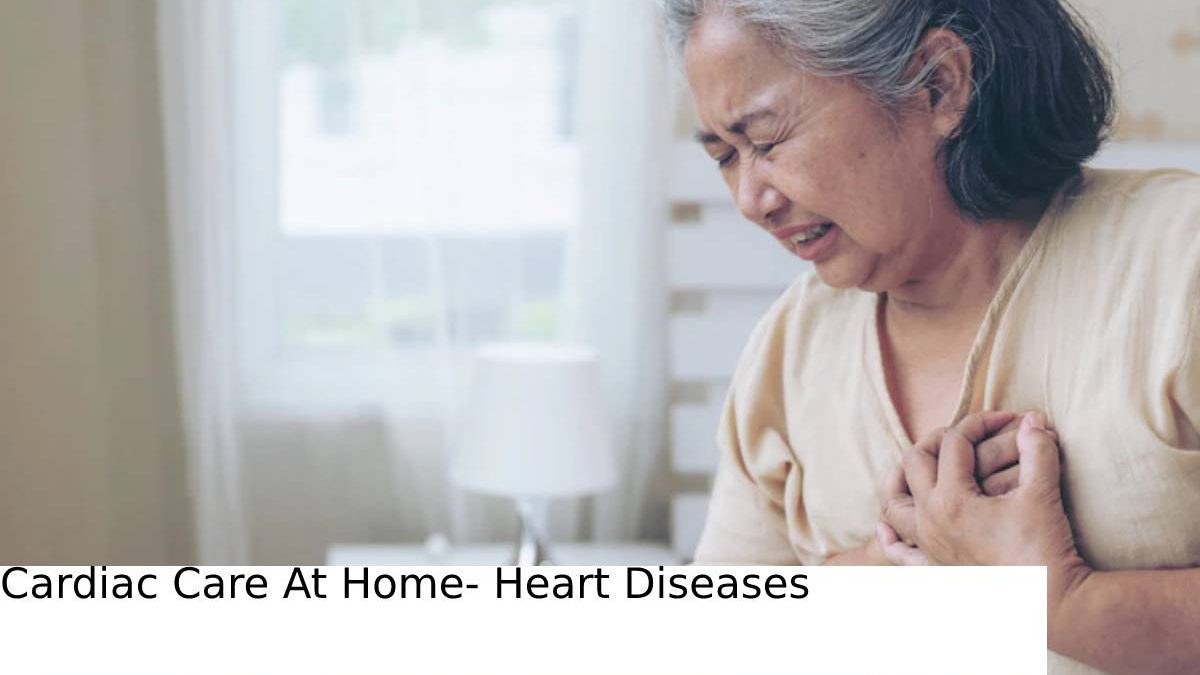Cardiac Care At Home–Hi, lovelies hope you all are doing fantastic. Today, we all will learn how to do cardiac care at home. People who suffer need special care 24/7 because they are susceptible to everything, so it is their utmost responsibility to take care of them. So here we will read down all about it.
If you’re recovering from heart surgery or living with congestive heart failure or high blood pressure, you may need extra care to get you back to doing the things you love. Our qualified nurses provide the specialized cardiac care you need to regain your independence.
Table of Contents
People Who Need In Home Cardiac Care
heart failure (HF)
hypertension
angina pectoris
Acute myocardial infarction (MI or AMI)
Ischemic Heart Disease
cardiomyopathy
Atrial tachycardia/fibrillation
CABG (Coronary Bypass Graft)
angioplasty and stent placement
We are now to help you recover as rapidly as possible, as long as your treatment will allow.
Benefits Of Cardiac Care At Home 24/7
Fewer hospital visits
Better quality of life
also, Better Health Outcomes
Better patient and family education.
Better coordination with healthcare providers.
Help identify community services
Heart disease is often serious and requires individualized treatment plans. The good news is that it’s never too late to take care of your heart. Adopting healthy lifestyle habits, taking medication, and taking care of yourself are ways to improve your quality of life.
What Is Cardiac Care ?
Cardiac care refers to the care that a physician provides for a patient’s cardiovascular health. Cardiologists will work together to evaluate, diagnose, and treat the various conditions that affect the cardiovascular system. They will also provide preventative recommendations such as: B. Diet and lifestyle changes to avoid early signs of cardiovascular disease such as high cholesterol.
Cardiac care includes many diagnostic services, including cardiac ultrasound, heart rate monitors, and outpatient procedures such as cardiac catheterization. Doctors may also offer medications, therapy, surgery, and other treatment options to help people with cardiovascular disease. There are many cardiac care methods, each dependent on a person’s unique needs. For example, someone at risk of a heart attack may be prescribed beta-blockers. In contrast, someone with an irregular heartbeat may be fit with a pacemaker, an implanted device that helps regulate the heart’s rhythm.
Goals For Cardiac Care At Home
The overall goal of cardiac care is to reduce mortality rates from cardiovascular disease and help people with chronic cardiovascular disease manage their symptoms. As a result, older people with severe cardiovascular conditions, such as valvular disease or heart failure, can lead relatively everyday lives with proper care.
However, proper care for older adults with cardiovascular disease goes beyond medical care in a heart clinic or hospital setting. Older adults should receive around-the-clock supervision because of the high mortality rates from cardiovascular disease and the potential severity of symptoms, including dizziness, fatigue, and mobility problems. However, it is essential to reconcile loving and loving care with the freedom to live as independently as possible. . This is what home care offers to older adults with cardiovascular diseases.
What Is Home Care?
Home care is the care of a person at home. caregivers are practice-trained professionals to meet the many needs of older people while living independently. Also, it can allow seniors to continue living independently instead of moving to an assisted living facility, a loved one’s home, or other more stressful options.
It help older people meet needs that they may not be able to meet on their own or that family and friends may not be able to complete due to availability or other difficulties. In addition, home caregivers provide valuable guidance and support with hygiene, walking, housework, taking medication, planning healthy meals, and more. As with cardiac care, home care practices vary based on client needs.
A combination of attentive home care and heart care by a physician helps improve the quality of life for older people. In addition, at-home support can help seniors adopt healthy behaviors, avoid accidents such as falls, and feel a sense of caring and companionship while working to improve their cardiovascular health.

